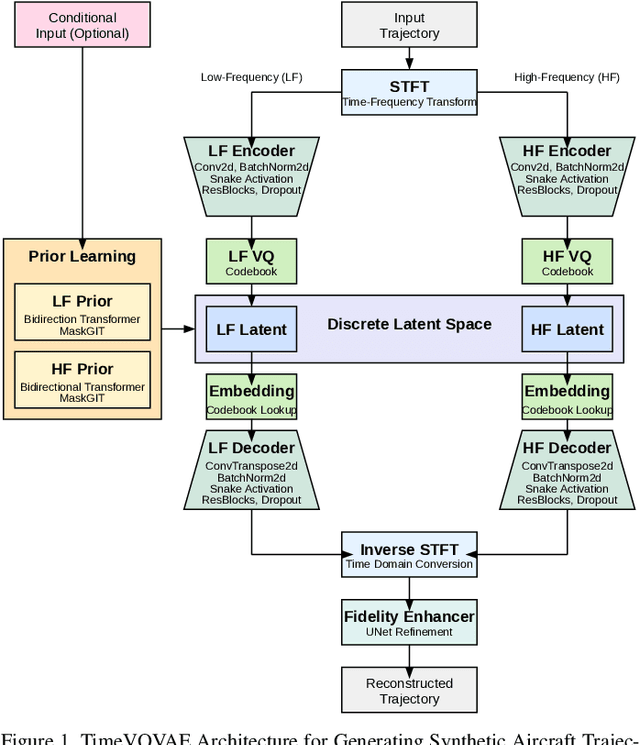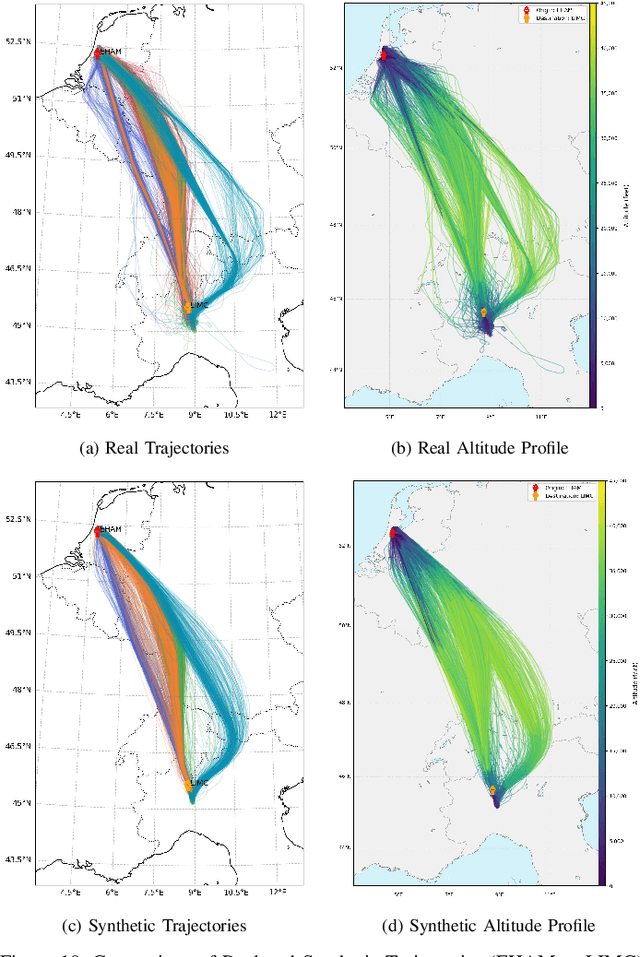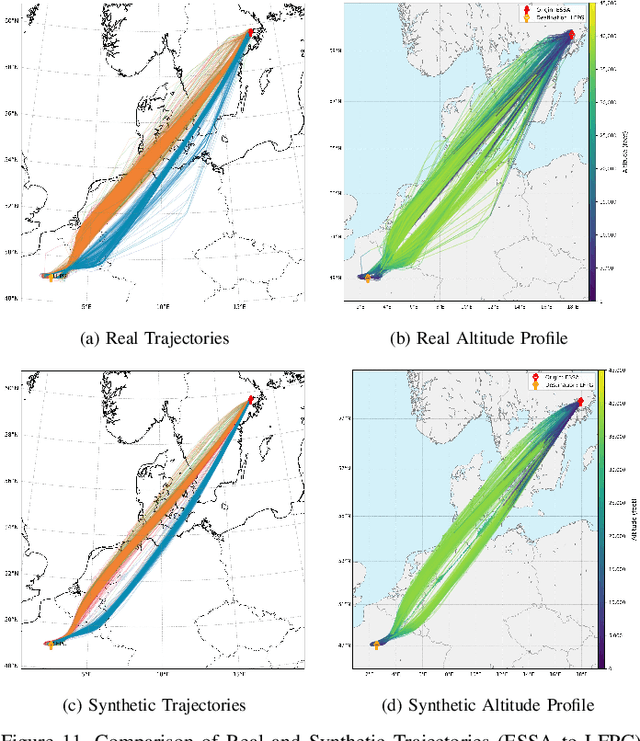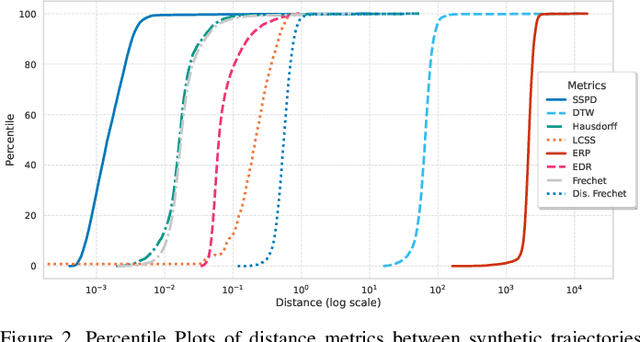Synthetic Aircraft Trajectory Generation Using Time-Based VQ-VAE
Paper and Code
Apr 12, 2025



In modern air traffic management, generating synthetic flight trajectories has emerged as a promising solution for addressing data scarcity, protecting sensitive information, and supporting large-scale analyses. In this paper, we propose a novel method for trajectory synthesis by adapting the Time-Based Vector Quantized Variational Autoencoder (TimeVQVAE). Our approach leverages time-frequency domain processing, vector quantization, and transformer-based priors to capture both global and local dynamics in flight data. By discretizing the latent space and integrating transformer priors, the model learns long-range spatiotemporal dependencies and preserves coherence across entire flight paths. We evaluate the adapted TimeVQVAE using an extensive suite of quality, statistical, and distributional metrics, as well as a flyability assessment conducted in an open-source air traffic simulator. Results indicate that TimeVQVAE outperforms a temporal convolutional VAE baseline, generating synthetic trajectories that mirror real flight data in terms of spatial accuracy, temporal consistency, and statistical properties. Furthermore, the simulator-based assessment shows that most generated trajectories maintain operational feasibility, although occasional outliers underscore the potential need for additional domain-specific constraints. Overall, our findings underscore the importance of multi-scale representation learning for capturing complex flight behaviors and demonstrate the promise of TimeVQVAE in producing representative synthetic trajectories for downstream tasks such as model training, airspace design, and air traffic forecasting.
 Add to Chrome
Add to Chrome Add to Firefox
Add to Firefox Add to Edge
Add to Edge